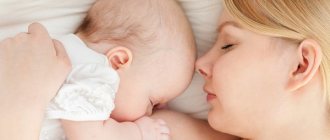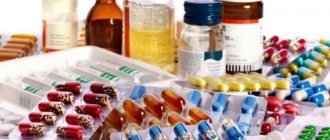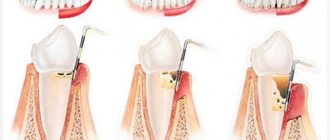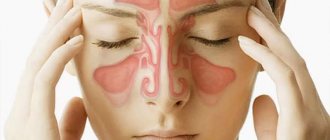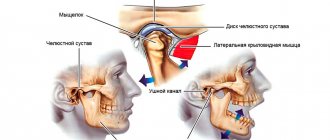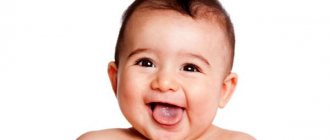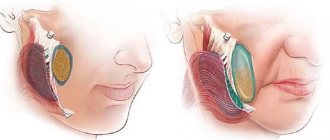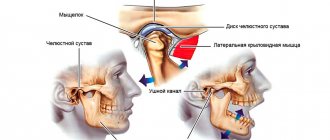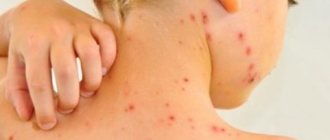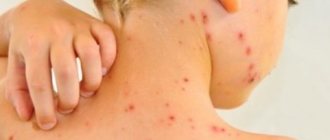Why measure temperature?
The measurement has primarily diagnostic value. We approach conditions in which the temperature is above or below the conventional limit of 38 degrees Celsius a little differently. Since most fevers in our latitudes go away on their own within 3 days, in the absence of threatening symptoms, I recommend observation for 72 hours after the first rise in temperature above 38. If after this period it rises again above 38, a doctor’s examination is necessary to decide whether whether this is a lingering virus (and we continue to observe) or whether more aggressive intervention is required. Thus, we measure temperature to determine treatment tactics, but not to resolve the issue of antipyretic treatment.
What to do if your child gets sick with Covid
Self-medication is strictly not recommended. Only a doctor can prescribe the necessary medications, taking into account the results of blood tests and other examinations of the baby. Mild forms of COVID-19 can be treated on an outpatient basis (at home). In severe cases, the small patient is hospitalized in the hospital, where he will receive timely assistance in case of any deterioration of the situation.
For mild cases of the disease, the treatment prescribed is the same as for a common cold: symptoms are relieved and the development of complications is prevented. Usually the doctor gives the following recommendations:
- drink more fluids;
- ventilate the room where the child is located more often;
- maintain a cool temperature and high humidity in the room;
- rinse or irrigate the nasal mucosa with saline solutions (if you have a runny nose);
- sleep more, move less (bed rest);
- gargle with herbal infusions and antiseptics.
You also need to limit the baby's contacts.
The medications usually prescribed are;
- sorbents - if there are problems with the gastrointestinal tract;
- antihistamines (to relieve swelling, itching) drugs;
- antitussive medications;
- antipyretic drugs.
At the onset of illness or after contact with someone who is sick, your doctor may also prescribe antiviral medications.
If Covid takes a moderate or severe form, antibiotics and other medications are prescribed, which only a doctor can prescribe.
How to decide whether to lower the temperature?
The answer is simple, regardless of the cause of the temperature. It doesn’t matter whether it is associated with an infection or a post-vaccination reaction, with teething or other reasons.
We lower the temperature when the child feels unwell.
There is nothing so beneficial about a rise in temperature that you have to endure it, and nothing so harmful that you need to take medicine while feeling normal. Therefore, when deciding on the issue of fever reduction, we look not at the thermometer, but at the child. If he feels bad, he’s breathing heavily, lethargic, his muscles or head hurt - you even lower 37.8. But if you can't get a child at 38.8 to get the medicine into him, then there's no need for the medicine.
BCG and SARS-CoV-2
During the pandemic, information about whether the BCG vaccination can protect against Covid has changed several times. The BCG hypothesis was first put forward in March 2022. New York and Texas researchers have published observations that in countries where infants are massively vaccinated against tuberculosis with the BCG vaccine, Covid spreads more slowly, and vaccinated people tolerate it more easily.
Unfortunately, to date, morbidity statistics do not support this theory. Coronavirus epidemics also raged in countries with mass immunization against tuberculosis. Moreover, the mortality rate from Covid, for example, in Russia even exceeded the same figure in countries without BCG vaccination.
However, scientific research in this direction is still underway. In August 2022, a study by Indian scientists appeared that the BCG vaccine still has a positive effect on how a person suffers a coronavirus infection. Let us note, however, that the sample for the study was extremely small: only 82 people took part in the experiment, and only elderly people. The results suggest that people vaccinated against tuberculosis vaccine develop cytokine storm to a much lesser extent and less frequently. Namely, this terrible complication in many cases is the cause of death from COVID-19.
How to reduce temperature?
Since this question is asked only by parents of young children, I will not write about medications for older children.
There are only three home remedies for kids to reduce their fever: the physical method, paracetamol (acetaminophen) and ibuprofen. If the child's arms and legs are warm, he needs to be undressed, you can hang him with wet towels, wipe him with water at room temperature, wrap his head in a wet scarf, or even put him in a cool shower. Whether or not to give medicine is your choice. Depends on your level of panic and your child's behavior. Small children cool down well on their own; sometimes it’s enough just to free them from their clothes. If your hands and feet are cold—vasospasm has begun—the physical method is not recommended, and the only option left is medication.
Diagnosis of coronavirus in children
The main method for diagnosing Covid in children, as in adults, is the PCR test. Also, if necessary, the doctor prescribes:
- general blood analysis;
- biochemical blood test and additional tests to detect blood clotting disorders and changes in some covid-specific markers (C-reactive protein, D-dimer, etc.);
- X-ray or CT scan to determine the condition of the lungs;
- consultation with specialized specialists, for example, a pulmonologist.
At home, it is advisable to use a pulse oximeter to monitor your breathing status. This is an inexpensive, compact device that measures saturation - the oxygen content in the blood. Normal values are 96 units and above.
How to dose?
The easiest way to dose Nurofen is: syrup dose (ml) = 1/2 weight (kg). This is based on a single dosage of 10 mg/kg ibuprofen.
Paracetamol is dosed at 15 mg/kg. If you dose the most popular syrup - Panadol - you can multiply the child’s weight in kg by 0.625.
A single dose can be given no more than once every 4 hours, but preferably no more than 3 times a day.
You should not use the dosage according to age, which is often placed on the packaging of drugs. This is dangerous because children of the same age weigh very differently. Correctly dose medications by weight or body surface area, but not by age.
Compound
| Homeopathic rectal suppositories | 1 sup. |
| active components: | |
| Chamomilla recutita (Chamomilla) (Chamomilla recutita (Chamomilla) D1 | 1.1 mg |
| Atropa bella-donna (Belladonna) D2 | 1.1 mg |
| Solanum dulcamara (Dulcamara) D4 | 1.1 mg |
| Plantago major (Plantago) (plantago major (plantago) D3 | 1.1 mg |
| Pulsatilla pratensis (Pulsatilla) (Pulsatilla pratensis (Pulsatilla) D2 | 2.2 mg |
| Calcium carbonicum Hahnemanni (Conchae) D8 | 4.4 mg |
| auxiliary component: solid fat (Adeps solidus) - 1089 mg, to obtain a suppository weighing 1.1 g |
When to call an ambulance?
There is no need to call an ambulance. No isolated increase in temperature is a reason for this. Isolated means that there are no other threatening symptoms, such as an unclear rash, severe shortness of breath or a bulging fontanel. Yes, an ambulance can always lower the temperature - with a lytic mixture or a hormone. But this is not necessary and may cause harm. The drug that forms the basis of the lytic mixture - analgin (metamizole) - is prohibited in children throughout the civilized world. In addition, the ambulance is more likely to offer hospitalization.
Fever is not an emergency condition. If it worries you, lower your temperature and go to the doctor. Or call a doctor at home as planned.
Source: telegram.me/fediatrix
Vaccination against coronavirus
JSC "Medicine" (Clinic of Academician Roitberg) provides vaccination against coronavirus infection (COVID-19). You can undergo the procedure in comfortable conditions. The service is available to all citizens of the Russian Federation.
Find out more
Although coronavirus can now be quite a dangerous disease for children, in most cases they still have a mild or asymptomatic form without complications. Compared to the overall toll during the pandemic, child mortality accounts for just 0.4% of all coronavirus deaths. No one yet knows for sure why children’s bodies are better protected. But there are several hypotheses:
- children's bodies are generally healthier: at this age, chronic pathologies (diabetes, cardiovascular diseases) are less common, the lungs are not damaged by smoking and working in hazardous industries;
- Children have faster immunity than adults. They still don’t have enough clumsy “heavy artillery” in the form of a specific immune response. The child’s body very quickly produces many universal antibodies, which are also used to fight coronavirus;
- Children's lungs are thought to have fewer ACE2 cells that attack SARS-CoV-2. Therefore, the lung tissue is less damaged.
Why does my baby have colic? The reasons for this condition
The causes of colic in newborns are poorly understood, but they are thought to be related to the following:
- baby's intestinal spasms;
- air entering the esophagus during feeding or crying;
- allergies;
- lack of nutrition;
- digestive problems;
- lactose intolerance.
Foods that cause gas formation should be excluded from the child’s diet: chocolate, cocoa, coffee, legumes, fresh vegetables and fruits, sauerkraut, bananas, baked goods, muffins. A newborn baby may experience abdominal colic if a nursing mother consumes the listed products. Source: N.I. Ursova Infantile intestinal colic. Modern data // Issues of modern pediatrics, 2011, v. 10, no. 2, p. 125-131
Prices
| Name of service (price list incomplete) | Price |
| Appointment (examination, consultation) with a gastroenterologist, primary, therapeutic and diagnostic, outpatient | 1750 rub. |
| Prescription of treatment regimen (for up to 1 month) | 1800 rub. |
| Consultation (interpretation) with analyzes from third parties | 2250 rub. |
| Consultation with a candidate of medical sciences | 2500 rub. |
| Ultrasound of the abdominal organs (comprehensive) | 2900 rub. |
| Ultrasound of the retroperitoneal space (and retroperitoneal lymph nodes) | 1400 rub. |
| Ultrasound of the gallbladder | 1400 rub. |
| Ultrasound of the abdominal organs (comprehensive) | 2900 rub. |
| Ultrasound of the liver | 1600 rub. |
| Ultrasound of the spleen | 1600 rub. |
| Diagnosis of Helicobacter pylori infection (HELPIL test) | 1200 rub. |
| Colonoscopy | 5050 rub. |
| Biopsy during endoscopic examination (1 biopsy) | 1000 rub. |
| Body composition assessment - bioimpedance analysis | 2150 rub. |
| Body composition assessment - repeated (bioimpedance analysis) | 1750 rub. |
| Esophagogastroduodenoscopy (EFGDS) | 3050 rub. |
Recovery of children after Covid
Coronavirus infection is also special in that after recovery, long-term (usually at least six months) rehabilitation is necessary, since many systems and organs are affected during the disease. Rehabilitation measures are needed even for those who suffered from Covid easily.
A doctor can select an individual rehabilitation program after prescribing tests and examinations for the child. Some rehabilitation activities can be done at home, while others can be done by visiting special centers or medical institutions. Typically recommended:
- a course of multivitamins;
- hardware physiotherapy;
- massotherapy;
- physiotherapy;
- drink more water;
- eat more vegetables, fruits and, in general, adjust your diet in a healthier direction to provide the body with a maximum of nutrients;
- walk more in the fresh air, play, play sports (in a gentle manner);
- establish a sleep schedule;
- Ventilate the room regularly.
If a child is diagnosed with complications after Covid - pathologies of systems and organs - the doctor may also prescribe special therapy.
